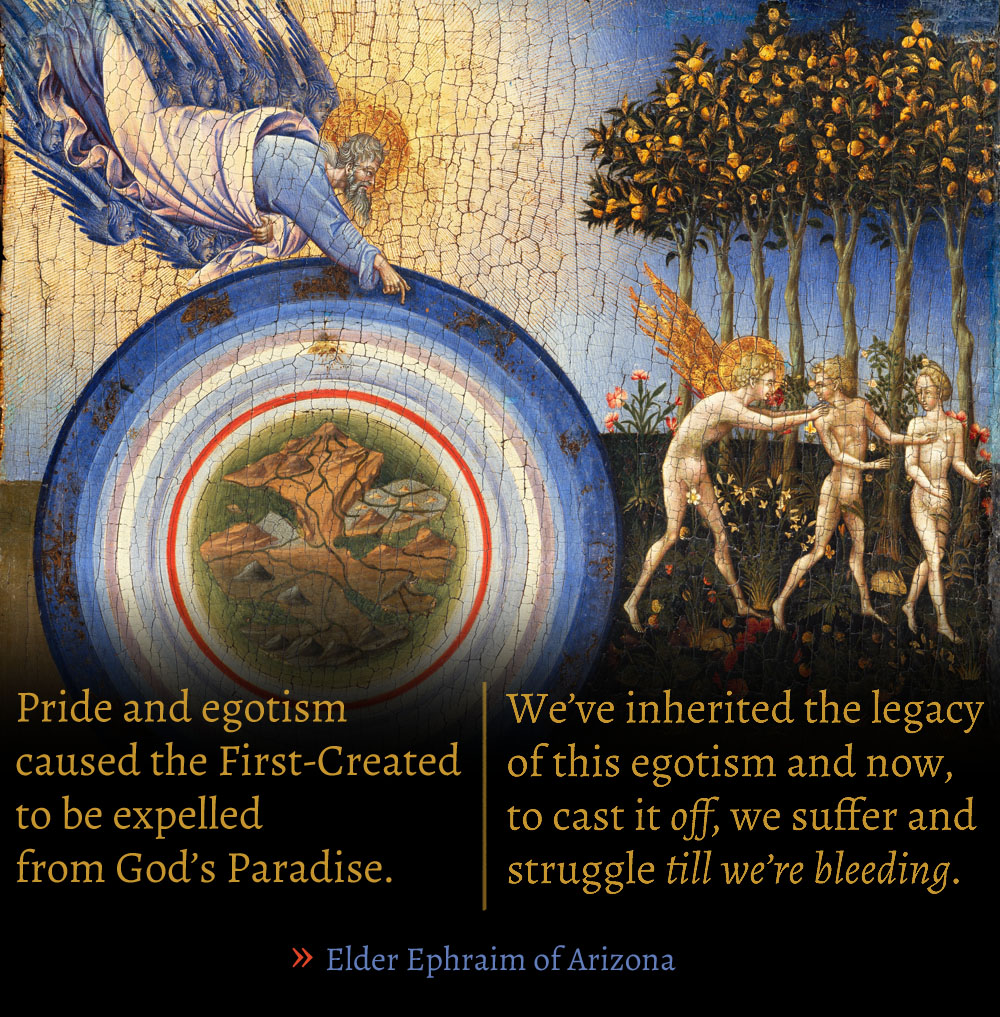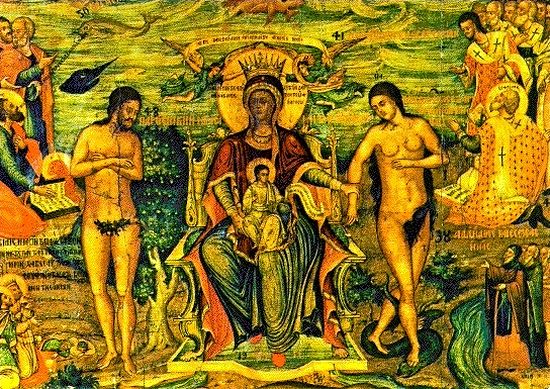The anonymous Kontakion on Adam’s Lament is one of the earliest we possess and is probably of the fifth century and pre-dates those of St Romanos. It is still used in the office of Matins for the Sunday before Lent, where the Proemium is followed not, as is usual, by the first stanza of the hymn only, but by four, numbers 1 to 3 and 7. The text in the Triodion differs in places from that of the critical edition, notably in the refrain, which is in the first person, ’Have mercy on me who have fallen’. In the third line of stanza 7 the Triodion has, ’Implore God for the one who has fallen’, which does not scan.
Saturday, 21 February 2015
Adam’s Lament
Adam, father of all mankind, in paradise knew the sweetness of the love of God; and so when for his sin he was driven forth from the garden of Eden, and was widowed of the love of God, he suffered grievously and lamented with a mighty moan. And the whole desert rang with his lamentations. His soul was racked as he thought: “I have grieved my beloved Lord.” He sorrowed less after paradise and the beauty thereof –he sorrowed that he was bereft of the love of God, which insatiably, at every instant, draws the soul to Him.
In the same way the soul which has known God through the Holy Spirit but has afterwards lost grace experiences the torment that Adam suffered. There is an aching and a deep regret in the soul that has grieved the beloved Lord.
Wednesday, 18 February 2015
HOW TO SPEND CHEESEFARE WEEK
Cheese Fare Week is the threshold and the beginning of the fast. That is why for the true children of the Church it is necessary to act all the more temperate in Cheese Fare Week than in the previous days, although they should always do so. However, will the Christian listen to the sweet odes of his loving mother? She ordains to revere these days more, but they commit more excesses; she commands to abstain, and they betray less control;
Saturday, 14 February 2015
Wednesday, 11 February 2015
Sermon on the Sunday of the Prodigal Son
Metropolitan Kallistos (Ware)
Metropolitan Kallistos Ware delivers his sermon on the Sunday of the Prodigal Son in the presence of Metropolitan Nicholas at the Sts. Constantine & Helen Greek Orthodox Church in Westland, MI.
The Hagioritic Tome
The clearest short statement of the teachings of St Gregory Palamas and the Hesychasts can be found in "The Declaration of the Holy Mountain in Defence of Those who Devoutly Practise a life of Stillness," otherwise known as the "Hagiortic Tome." An English translation can be found in the fourth volume of thePhilokalia, pp. 418-425.
St Gregory Palamas wrote the Declaration in 1340 during the latter stage of his dispute with Barlaam, though the Calabrian is nowhere mentioned by name. The issues raised in the Declaration should therefore be considered in the light of St Gregory Palamas' ongoing dispute with Barlaam, though it should be noted that there is no mention of their earlier disagreement concerning the use of apodictic reasoning as a theological method, as was raised in their exchange on the Latin teaching on the procession of the Holy Spirit. Nor is there any mention of somatopsychic practice, though the role of the body in prayer is emphasized. It appears their earlier disputes over these issues were not of sufficient importance to necessitate a conciliar, doctrinal refutation. Rather, the Declaration focuses on the Hesychasts' claim of the reality of man's participation in God's uncreated, deifying energies.
Subscribe to:
Posts (Atom)






